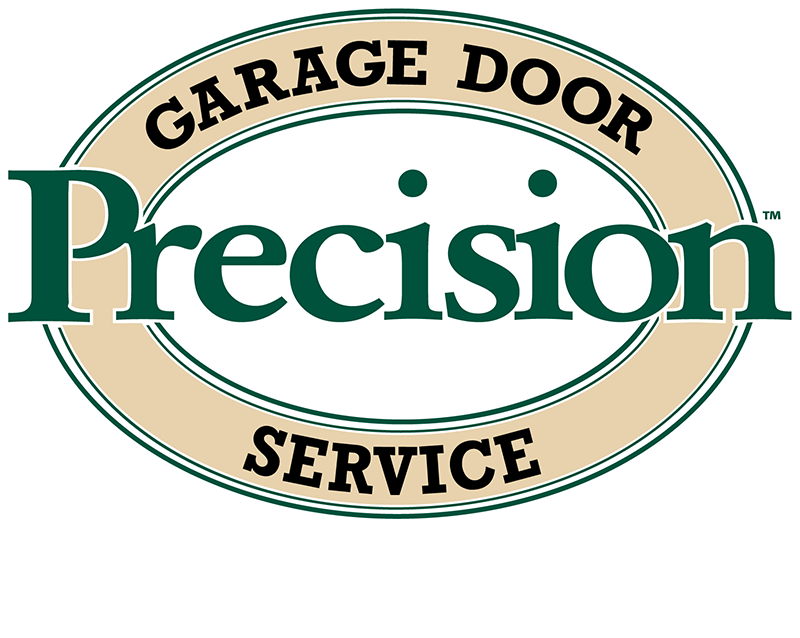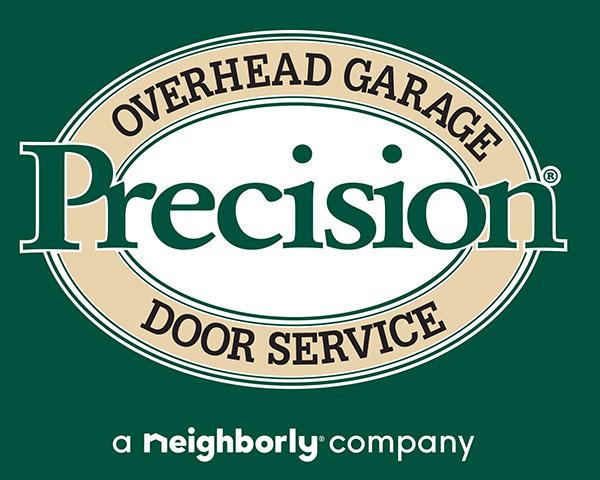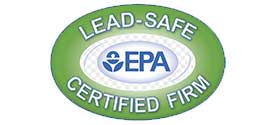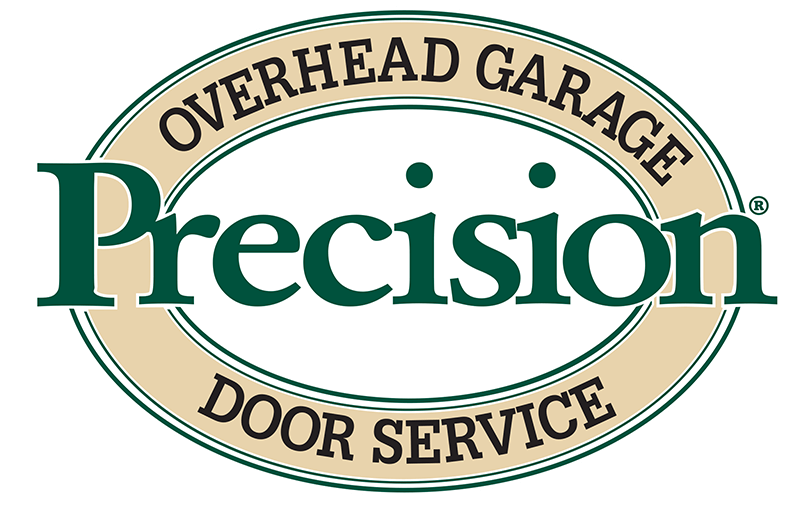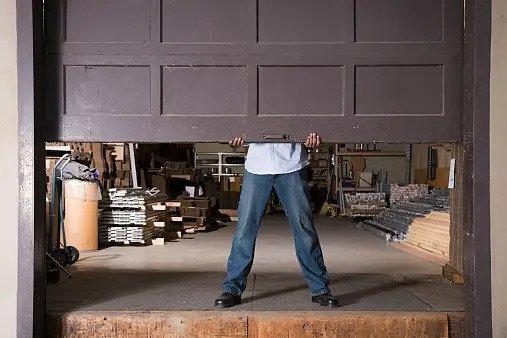
Your garage door, a vital part of your home’s security and convenience, operates as a complex system of interconnected components. Like any mechanism with moving parts, these components can experience wear and tear over time, resulting in noise, increased strain, or even significant breakdowns. Among the most overlooked yet essential practices in garage door maintenance is lubrication. Regular garage door lubrication can dramatically extend its lifespan, enhance its performance, and save you from costly repairs down the line.
This comprehensive guide aims to navigate you through the best practices and products for maintaining smooth garage door operation, centering on the importance and role of lubrication. Whether you’re an experienced homeowner or a first-time house owner, this guide will offer insightful information for everyone interested in keeping their garage door in optimum condition.
Understanding Garage Door Lubrication
Before diving into the specifics of garage door lubrication, it’s important to understand what it entails. Garage door lubrication refers to the process of applying a lubricant to various moving parts of the garage door system. This process reduces friction, ensuring that these parts can move freely and smoothly without any resistance. Lubricating garage door parts regularly can mitigate wear and tear, reduce the noise produced by the door, and improve overall door performance.
Essential Parts to Lubricate
Lubricating your garage door isn’t just about applying lubricant randomly to parts of the door. Specific parts need particular attention because they’re constantly in motion and prone to grinding and wearing out. Here are the parts you should focus on:
Rollers
These are the small wheels that glide along the tracks each time you open or close the door. Lubricating them ensures they roll smoothly and quietly.
Tracks
While you don’t lubricate the tracks directly, cleaning them and ensuring they’re free of debris or rust can enhance the roller’s movement.
Hinges
The hinges hold the panels of your garage door together. Lubrication ensures they don’t seize up or create unpleasant noises when you operate the door.
Springs
Your garage door springs work under a lot of tension, and lubricating them can help prevent rust and broke. Also ensure they don’t snap.
Lock and Keyhole
A little lubrication can ensure the locking mechanism works smoothly, preventing it from jamming or getting stuck.
Remember, it’s not just about lubricating these parts but also using the correct type of lubricant, which leads us to our next section.
Choosing the Right Lubricant for Your Garage Door
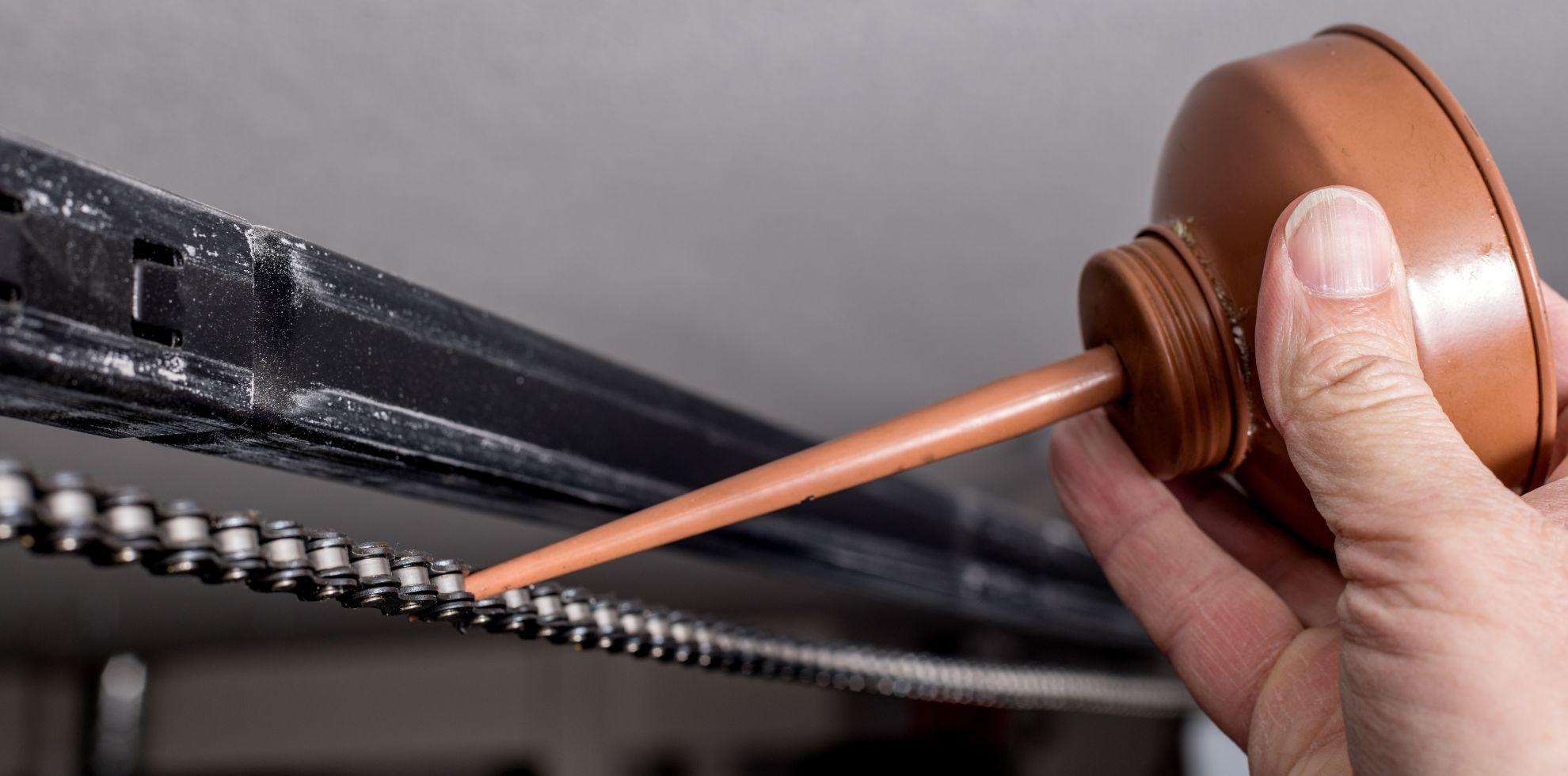
When it comes to choosing a lubricant for your garage door, not all products on the shelf will do the trick. Some can even attract dust and grime, leading to more harm than good. For optimal results, consider using a non-silicone-based garage door lubricant. These lubricants are specifically designed for garage doors, ensuring they don’t attract dirt or cause buildup that can hamper your door’s operation.
Also, it’s recommended to avoid using WD-40 as a lubricant. Despite being a popular product for many household applications, it’s primarily a cleaner and rust dissolver but not an ideal lubricant for a garage door system.
Garage Door Lubrication: Best Practices
Now that you have an understanding of what parts to lubricate and the right lubricant to use, here are some best practices for garage door lubrication:
Clean Before You Lubricate
Always clean the parts of your garage door before applying lubricant. This process removes any dust, dirt, or old lubricant that could interfere with the new lubricant’s effectiveness.
Lubricate Regularly
Make lubrication part of your regular garage door maintenance. Depending on usage, consider lubricating your garage door every three to six months.
Less is More
When applying lubricant, remember that less is more. A thin, even layer on each part is enough to do the trick.
Safety First
Always ensure your garage door is in the closed position before you start lubricating. This safety step helps prevent any accidental door movement that could lead to injury.
Additional Lubrication Tips
While the lubrication process is quite straightforward, some additional tips can make your maintenance efforts even more effective.
Consider Weather Conditions
Seasonal changes can affect the performance of your garage door. For instance, during winter, doors can freeze, and mechanisms can seize. Regular lubrication can prevent these issues and ensure smooth operation throughout the year.
Don’t Neglect the Manual
Every garage door and its mechanisms are different. Your garage door’s user manual often provides specific advice on maintenance, including lubrication. Make sure to check and follow these guidelines.
Inspection is Crucial
While lubricating the garage door components, it’s a perfect time to inspect the parts for any signs of wear and tear. If you see any damaged or excessively worn parts, it may be time to replace them.
Professional Assistance
While DIY maintenance, including lubrication, is a great way to keep your garage door in good shape, don’t underestimate the value of professional assistance. Professionals can spot potential problems that you might miss and provide comprehensive maintenance services that extend beyond lubrication. Moreover, some aspects of garage door maintenance, such as tension spring adjustment, can be dangerous and should be left to professionals.
Regular professional check-ups, coupled with your own maintenance efforts, can ensure the longevity and reliability of your garage door.
The Role of Quality Products
Investing in quality products also plays a pivotal role in maintaining your garage door. High-quality lubricants and cleaning products can provide better protection and last longer, making your maintenance efforts more effective. Consider products specifically designed for garage doors as they take into account the unique needs of these mechanisms.
Lubrication in Garage Door | Conclusion
Garage door lubrication, while often overlooked, plays an essential role in ensuring the longevity and smooth operation of your garage door. By understanding the right lubrication practices, using the correct products, and being consistent with your maintenance, you can save yourself from costly repairs and extend your garage door’s life. While DIY efforts can go a long way, never hesitate to seek professional assistance for comprehensive maintenance and safety. After all, a well-functioning garage door is not just about convenience—it’s also a matter of home security and peace of mind.
